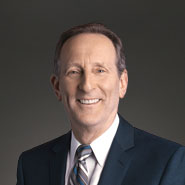Publications

How Fair Are Appellate Panel Selections?
The U.S. Court of Appeals for the Ninth Circuit issued a summary order on Jan. 9 in Sevcik v. Sandoval denying a petition for en banc review of a panel decision that struck down Nevada’s ban on same-sex marriage. The petition contained a few unremarkable arguments for rehearing, but one garnered a great deal of attention. The Coalition for the Protection of Marriage argued that “[t]he appearance is strong and inescapable that the assignment of this case to this three-judge panel was not done through a neutral process but rather was done in order to influence the outcome in favor of the plaintiffs.”
Questions about panel selection are not new. The most famous involved the panel-packing efforts of the U.S. Court of Appeals for the Fifth Circuit during the civil rights era. Scholars have shown that the circuit’s chief judge in the 1960s, Elbert Tuttle, manipulated the assignment of appeals both to appellate panels and to three-judge district courts so that at least two liberal judges were on each panel. This was done in an effort to ensure implementation of the U.S. Supreme Court’s desegregation rulings. More recently, scholars have undertaken statistical analyses of whether the panel selection process in the federal circuits is truly random.
That was the tack taken by the coalition in seeking en banc review of the Ninth Circuit’s same-sex marriage ruling. The coalition argued that its statistical analysis showed a “high likelihood” that, because certain “liberal” circuit judges heard such a high number of marriage-equality cases including its own, the panel assignment process was not neutral. The coalition appended a study that used statistical modeling and probability analyses to examine 11 “relevant cases” in the Ninth Circuit involving the federal constitutional rights of gays and lesbians and the composition of the hearing panels for those cases. The study specifically emphasized that Judge Marsha Berzon had been assigned to five of those 11 cases and Judge Stephen Reinhardt had been on four of them. It concluded that, even under a deferential “benefit-of- the-doubt” approach, the odds were 60-to-1 against those judges being assigned to the coalition’s panel in light of their service on previous relevant cases. Using a more “robust” statistical analysis, the odds against that result jumped to 441-to-1, according to the study.
[Full text is available in the PDF below.]
